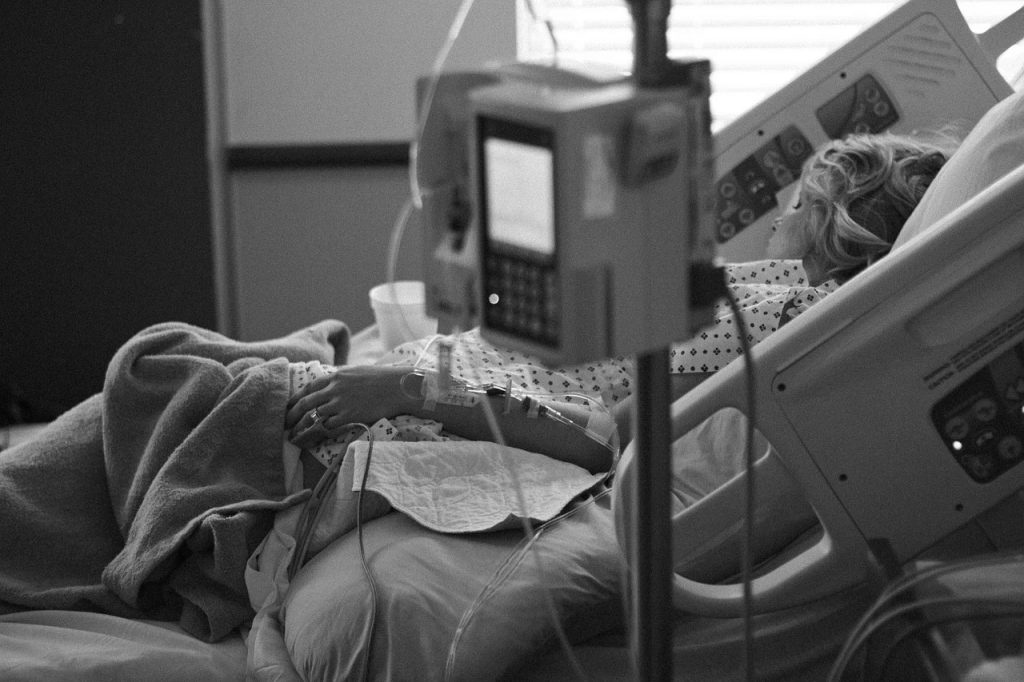ERs Are Inundated With Patients, But Not Because Of The Pandemic
ERs have seen a surge in critically ill patients, but not because of Covid-19.
This article is more than 2 years old

Covid-19 has caused a lot. It has caused intense supply chain deadlocks. It has fueled a growing energy crisis. And it has sparked a mass exodus of workers fleeing their careers which in turn has incited a widespread labor shortage. At the peak of the virus’ ravages, it caused hospitals to be inundated with patients and to be in desperate need of live-saving ventilators. These are scenes out of war zones. Hospitals across the United States are once again rapidly filling up with seriously ill patients, but this time it’s not the fault of Covid-19, at least not directly.
NPR detailed what is currently occurring at Sparrow Hospital located in Lansing, Michigan. The hospital has been experiencing an extreme surge in the number of severely sick patients coming into the E.R. Even though according to The Epic Heath Research network E.R. rates have returned to normal, the reason that hospitals are overwhelmed is that the people who are going to the hospital are vastly sicker. Because the patients coming in are so sick, they require longer more intense care which means less bed turnover which is why hospitals are filling up and becoming overwhelmed. At Sparrow Hospital, they have stretchers and recliners lining the halls in an attempt to accommodate all of the ill patients that it is taking in. This is a scene that has been playing out at hospitals nationwide.

Sparrow Hospital even had to block off a section of their E.R. because the hospital’s long-term care unit had completely filled up and they needed a place to put the additional critically ill patients who required long-term treatment. Sparrow’s emergency room nursing director Tiffani Dusang said that the hospital is also seeing a record number of ambulances pull up to the bay every day, sometimes as many as 100 show up in a day. “It’s the highest I’ve ever seen in my career,” said Dusang.
Dusang continued to explain that multiple times a week her E.R. reaches a point where it physically cannot accommodate one more seriously ill person and has to begin diverting the ambulances to other nearby hospitals. She expressed that, in some cases that is problematic because Sparrow is the only hospital in the area capable of treating patients who have incurred severe trauma.
Seriously ill patients are suffering the effects of the hospitals being so overwhelmed. One man, who is paralyzed and recently had surgery for colon cancer had come to the E.R. because the wound from his surgery had reopened and was secreting large amounts of fluid. The patient ended up lying in his own fluids for nine hours before a nurse was able to get to him. By the time he was treated he was crying and said that he knew he would wind up getting an infection because, as a paraplegic, he was unable to move away from his secretions.
Hospital medical staff are also suffering the effects of patient inundation. Dusang said that “I cannot tell you how many of them [the nurses] tell me they went home crying” after they had finished their shifts. She said that she comes to work every day with such feelings of anxiety because she fears that every time she looks at her computer to check her inbox that she’ll see another resignation letter from a nurse who just couldn’t take it anymore. More resignations serve to put hospitals’ staffs under even more intense pressure.
Covid-19 may not have caused the latest surge in critically ill patients, but it certainly prevented those patients from seeking appropriate medical care sooner which is why hospitals are now so overwhelmed. It remains unclear how long this wave of seriously ill patients will continue to flood the nation’s E.R.s.



